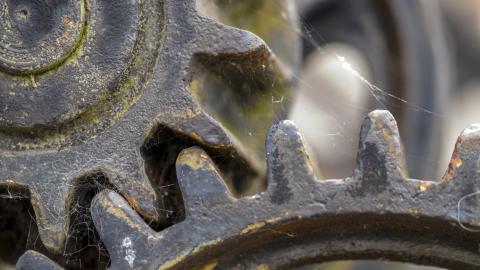Farm equipment, material handling equipment, powered conveyance, automobiles and more. They all rely on lubrication to run smoothly.
Sealed and self-lubricating bearings have emerged as the choice among automotive manufacturers, and for good reason. In light-duty applications they’ve shown longevity, durability and a cost savings with less warranty work resulting from part failure. It’s also resulted in the aftermarket simply replacing these parts rather than checking them alongside every vehicle service event.
However, most technicians know to still check every lubricated and greased part on a vehicle, both out of habit and helping the customer.
Checking rear axle or differential fluid, transmission fluid and inspecting sealed hub bearings will give your customer an idea of useful life of a specific component, and even give an idea of what future service may be needed. While full under car lubrication may no longer be needed, there are still plenty of lubrication points to watch to keep a vehicle moving smoothly and avoid major repairs.
And in the rest of the industrialized world? Sealed and self-lubricating bearings simply won’t hold up to the rigors and extended use of manufacturing facilities, farm equipment or heavy-duty trucking. The value of preventive maintenance including lubrication can never be overstated, keeping machines running and the profit machine churning.
Take a combine’s corn head and all the moving parts in the process. The machine grabs the stalk, removes the ear, puts it on a sheller and belt into a hopper, then augured out into a wagon. Failure of any of those parts means a collection shutdown until things are fixed or replaced, and losing money.
The examples above are perfect illustrations of how an ounce of prevention is worth a pound of cure. A bit of time searching for and lubricating grease fittings saves a lot of frustration in the end, for both you and your customer.
The best advice? Check those fluids periodically, and pay attention to dirt and dust collecting around sealed bearings, and tell your customer what to look for. They are the biggest factor in preventive maintenance and proper lubrication.
Do your customers play an active role in preventive maintenance? Or are they more likely to avoid smaller issues until they become major repairs?





Comments